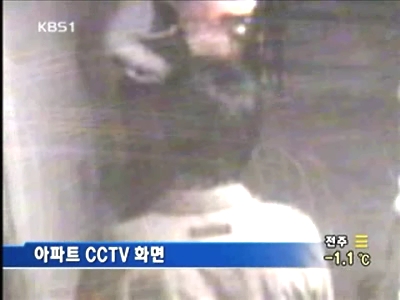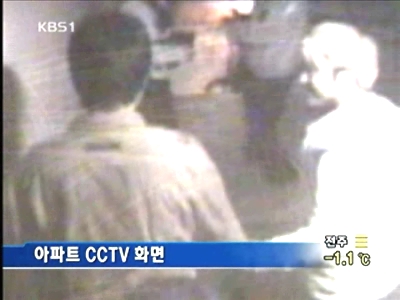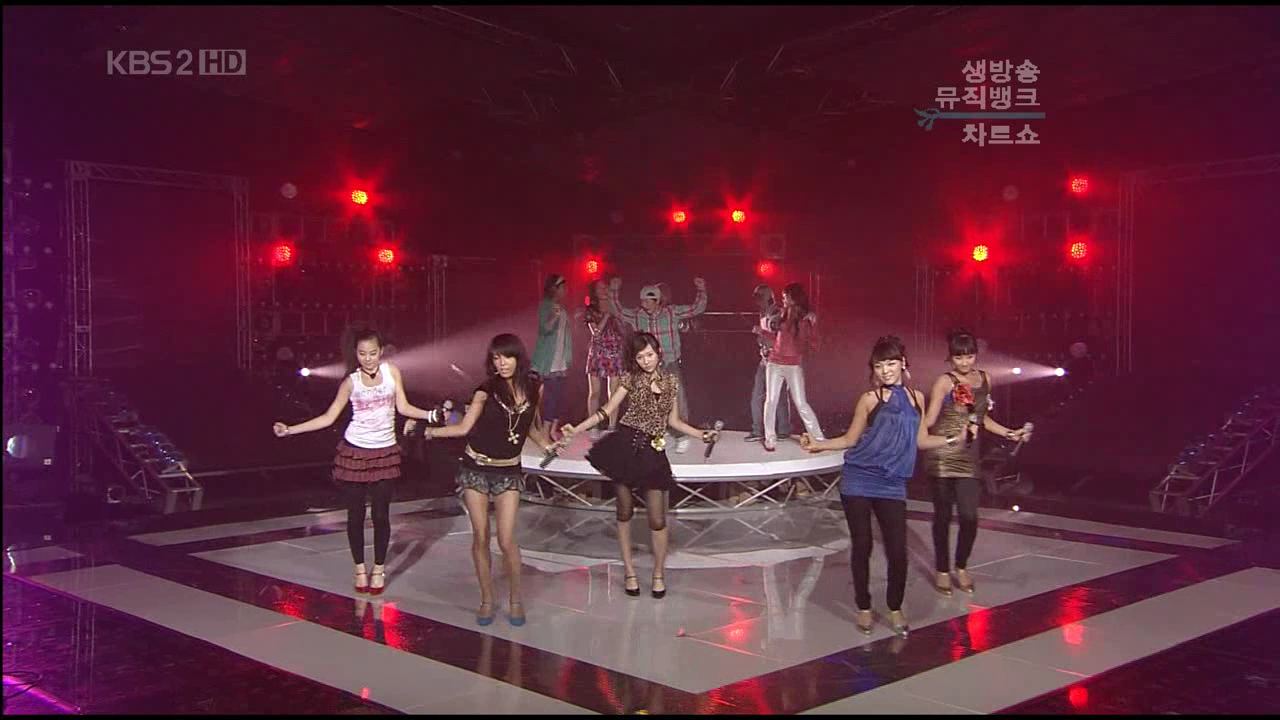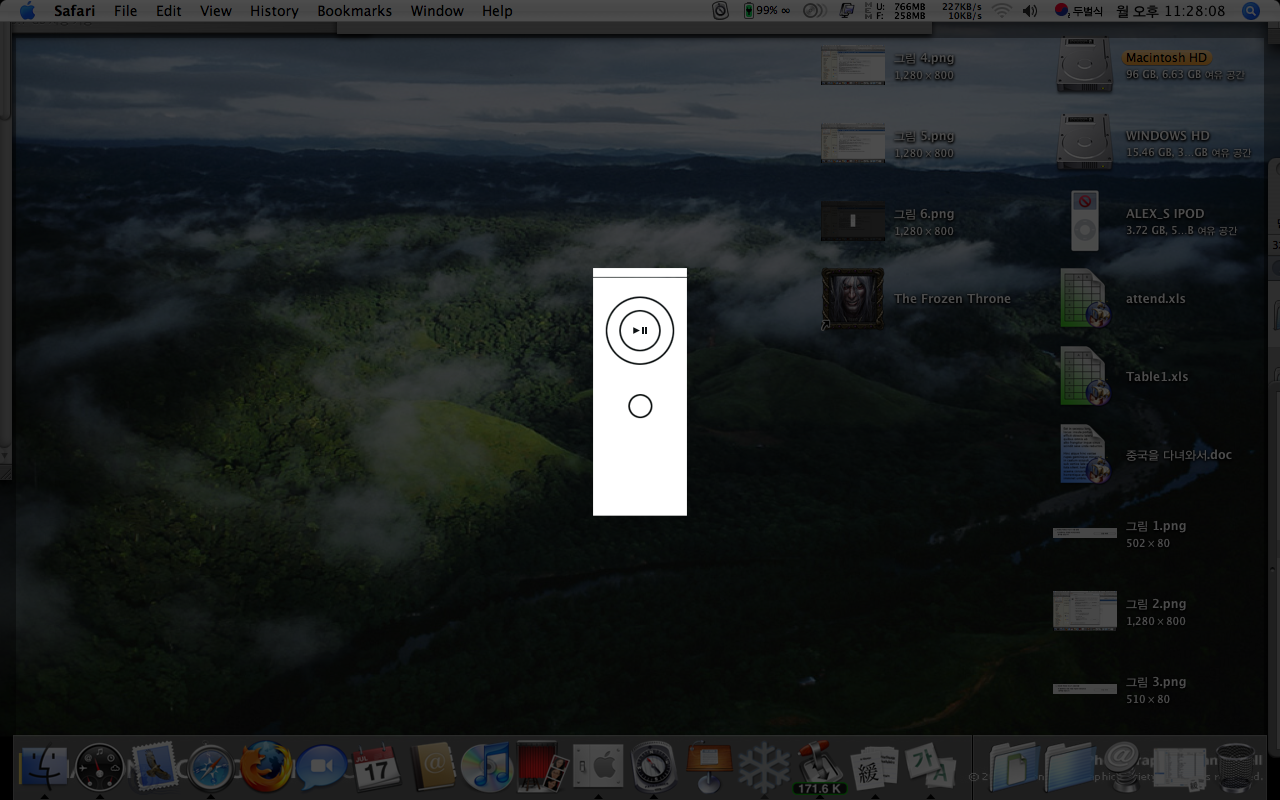제 목 : 미국인회사 영어인터뷰 실전문제(1)
< 영어 인터뷰 질문 사항 >
Q.당신은 이전의 직장에서 어떤일을 배웠는가 ?
→ What have you learned from some of the previous jobs you have
held?
Q.이전의 고용주는 당신을 어떻게 대우를 했는가 ?
→ How did previous employers treat you ?
Q.당신은 당황하지 않고 지시를 받을 수 있는가 ?
→ Can you take instructions whithout feeling upset ?
Q.당신은 우선 돈을 버는것이 흥미가 있는가 아니면 당신의 동료에
대한 봉사가 만족한 성취라고 생각하는가 ?
→ Are you primatily interested in making money or do you feel that
service to your fellow man is a satisfactory accomplishment ?
Q.당신은 어떤 타임의 사장을 좋아하는가 ?
→ What kind of boss do you prefer ?
Q.당신의 가장 좋은 친구들은 누구인가 ?
→ Who are your best friends ?
Q.당신은 다른 사람과 함께 일하는 것이 더 좋은가 아니면 혼자서
하는 것이 좋은가 ?
→ Do you prefer working with others or by yourself ?
Q.당신은 영구적인 직업을 찾고 있는지, 아니면 일시적인 직업을 찾고 있
는지 ?
→ Are yo looking for a permanent or temporatry job ?
Q.당신이 자랄때의 당신의 가정환경에 관해 말해 주시오.
→ Tell me about your home lofe during the time you were growing up.
Q.당신 부친의 직업은 무엇인가 ?
→ What is your father's occupation ?
제 목 : 미국인회사 영어인터뷰 실전문제(2)
Q.왜 당신은 이런 특수한 일을 좋아하는가 ?
→ Why do you think that you would like this particular type of job ?
Q.당신이 선택한 분야에서 성공하려면 어떤 개인의 특성이 필요한가 ?
→ What personal characteristics are necessary for success in your
chosen field ?
Q.좋은 사회에서 개인의 발전을 결정하는 것이 무엇이라고 생각하는가 ?
→ What do you think determines an individual's progress in a good
company ?
Q.당신은 고등학교 시절에 반에서 몇등이나 했는가 ? 대학시절엔 어느
정도 였는가 ?
→ How did you rank in your graduating class in high school ?
Q.당신은 30세까지 어느정도의 돈을 벌고 싶은가 ? (25세, 40세, 45세)
→ How much money do you hope to earn at eage 30 ? 35 ? 40 ? 45 ?
Q.당신은 여자친구 (남자친구)가 있는가 ? 관계는 진지한가 ?
→ Do you have a girl friend / boy friend ? Is it serious ?
Q.당신은 어떤 지리적 위치를 중요시 하는가 ? 이유는 ?
→ Do you prefer any geographic location ? Why ?
Q.당신은 스포츠에 어느정도 흥미가 있는가 ?
→ How interested are you in sports ?
Q.당신의 가족에 관하여 당신이 생각하는 바는 ?
→ How do you feel about your family ?
Q.당신의 봉급에 관한 의견은 ?
→ What are your ideas on salary ?
Q.당신은 자신의 범위에서 성공할 것으로 믿는 어떤 면허 자격증을
가지고 있는가 ?
→ What qualifications do you have that make you feel that you will
be successful in your field ?
Q.당신이 우리회사에 관해 아는 바를 이야기 해 보시오.
→ What do you know about our company ?
Q.당신은 학창시절 방학을 어떡게 지냈는가 ?
→ How did you spend your vacations while you were in school ?
Q.당신은 당신의 대학비용중 몇 퍼센트를 당신자신이 벌어서 충당했는
가 ? 어떤 방법으로 ?
→ What percentage of your colleage expenses did you earn ? How ?
Q.왜 당신은 특수분야의 일을 선택하였는가 ?
→ Why did you choose your particular filed of work ?
Q.당신은 무슨일을 해왔는가 ? 어떡게 그 일을 하게 되었는가 ? 왜 당신
은 그 일을 그만 두었는가 ?
→ What jobs have you held ? How were they obtained ? Why did you
leave ?
Q.당신이 우리회사에서 일하고 싶다고 생각한 이유는 무엇인가 ?
→ Why do yo think you might like to work for our company ?
Q.당신은 어떤 종류의 직장이 가장 흥미가 있는가 ?
→ In what type of position are you most interested ?
Q.당신은 여가를 어떻게 보내는가 ? 당신의 취미는 무엇인가 ?
→ How do you spend your spare time ? What are your hobbies ?
Q.당신의 미래에 천직으로 삼을 직업에 관한 계획은 무엇인가 ?
→ What are your future vocational plans ?
제 목 : 영어인터뷰 따라잡기(1)
< 외국어 구사능력 질문 예 >
Q : What is your best foreign language?
(외국어 중 가장 자신있는 것은?)
A : English.
(영어입니다)
Q : How did you study English?
(영어는 어떻게 공부했읍니까?)
A : I studied fully in school and I have many chances related with
friends and American directly. I can listen to the T.V. more or
less.
(학교공부를 우선 충실히 했읍니다. 그리고 친구 몇명과 미국인과
직접 접촉하는 기회를 많이 가졌읍니다. 지금은 TV도 어느정도 볼 수
있읍니다)
Q : What foreign language did you learn except English?
(영어 외에는 어떤 외국어를 공부한 것이 있읍니까 ?)
A : Japanese. My parents helped me much and I can read and hear more
or less.
(일본어입니다. 아버지와 어머님의 지도로 쉬운것도 읽고 듣고 할 수 있
읍니다)
< 성장과정에 관한 질문 예 >
Q : Good morning. Please be seated.
(안녕하십니까? 앉으십시오)
A : Thank you, sir.
(감사합니다)
Q : Name and examination number, please.
(이름과 수험 번호를 말씀해 주십시오)
A : Number 42. my name is Lee In-su.
(네, 42번, 이인수입니다)
Q : Tell me a little bit about yourself, please.
(자기 소개를 좀 해주시겠습니까?)
A : I live is Sinkil-dong. I was born in Busan in 1964. I'm a student
of Daehan University. I have majored in business administration.
I like traveling very much and enjoy sports.
I belongs to tennis club at my university.
(저는 신길동에 살고 있으며, 1964년 부산에서 태어났고 현재 대한 대학교
에서 경영학을 전공하고 있습니다. 저는 여행다니는 것을 무척 좋아하고
운동도 즐깁니다. 대학에서는 테니스 클럽에 들어 있습니다)
< 신상에 관한 질문 예 >
Q : When were you born?
(생년 월일이 언제입니까?)
A : January 5, 1964.
(1964년 1월 5일입니다)
Q : Where is your family form?
(본적은 어디입니까?)
A : We're from Busan.
(부산입니다)
Q : What is your present address?
(현주소는 어디입니까?)
A : 35 Sinkil-dong, Youngdeungpo-gu, Seoul.
(서울 특별시 영등포구 신길동 35번지입니다)
Q : What schools have you attended?
(당신의 학력을 말해 보시오)
A : I finished Busan Primary School in 1976, and entered Busan junior
High School that same March. I graduated from there in February of
1979 and entered Busan High School in March of that year. Wnen I
finished 3-year course of my high school in February 1982, I ente-
red Daehan University in March 1983 where I'm studying now.
(1976년에 부산 국민학교를 졸업했으며 그해 3월에 부산 중학교에 입학하
였고, 1979년 2월에 중학교를 졸업하고 같은 해 3월에 부산 고등학교에
입학하였습니다. 1982년 2월에 고등학교 3년을 마치고 1983년 3월에 대
한 대학교에 입학하여 현재까지 다니고 있습니다)
Q : There was a year between the time when you graduated from high
school and you entered the university. What were you doing during
that time?
(고등학교를 졸업하고 대학에 입학할 때까지 1년의 공백 기간이 있는데
그 기간 동안 무엇을 하였습니까?)
A : I was sick and had an enough rest for recuperation. I am now in
good health. During those days I realized how important good hea-
lth is.
(건강이 좋지 않아 요양했습니다만 현재는 좋아졌습니다. 무엇보다 건강
이 중요함을 그때 알았습니다)
제 목 : 영어인터뷰 따라잡기(2)
< 여가활용에 관한 질문 예 >
Q : How do you spend holiday time?
(일요일은 어떻게 지냅니까?)
A : I was used to climb mountain with three members of friends
from entering university.
(대학교에 입학하면서부터 친구 3명과 등산하는 일이 보통이었읍니다)
Q : How do you spend your leisure time?
(여가시간을 어떻게 보내고 있읍니까?)
A : I spend my leisure time collecting many records because i like
music.
(저는 음악을 좋아해서 주로 많은 레코드를 수집하고 감상하는데 시간
을 보내고 있읍니다)
A : I like all sorts of sports. I am used to going the big game
because I particularly like the football game.
(저는 스포츠라면 다 좋아합니다. 특히 축구를 좋아하고 빅 게임에는
꼭 가보는 버릇이 있읍니다)
< 인생관, 직업관에 관한 질문 예 >
Q : What are your basic principles applied to your life?
(당신의 생활 신조는 무엇입니까?)
A : Never put off till tomorrow what I can do today. Putting things
off just makes it worse later. So even if it seems hard to do at
the beginning, I try to get it done and never let it go.
(오늘 해야 할 일을 결코 내일로 미루지 않는 것입니다. 해야 할 일을
미루다 보면 나중에는 더욱더 힘들어집니다. 그래서, 처음에는 조금 어
려운 것 같아도 미루지 않고 그때그때 바로 하려고 노력하고 있습니다)
Q : What do you think is the most important thing for your life?
당신의 인생에 있어 가장 중요한 것은 무엇이라 생각합니까?
A : I think the most important thing is having good friends. A person
can't live by himself, I think. It's really important to have good
friends you can talk to, and the more really good friends I have,
the better.
(가장 중요한 것은 좋은 친구들 가져야 한다고 생각합니다.
인간은 혼자서 살 수 없다고 생각하기 때문입니다. 대화할 수 있는 진
실한 친구를 갖는다는 것은 참으로 중요하고 진실한 친구는 많이 있으면
많이 있을수록 좋습니다)
Q : Can you name one person that you respect?
(존경하는 사람이 있다면 말씀해 보세요?)
A : My Korean teacher in high school. He had so much humor and vitali-
ty, and he was a man of discretion very much. He could make a per-
son see the contradictions in his thinking without making him feel
foolish. I learned a lot from watching the way he applied himself
to his teaching, and how he led people to see things.
(고교 시절의 국어 선생님입니다. 그 선생님은 유머가 풍부하였고 활력
이 넘쳤으며 대단히 사려가 깊은 분이었습니다. 그 선생님은 학생들의
감정을 상하지 않고 학생들의 사고방식의 모순을 시정해 주었지요. 저
는 그 선생님의 가르치는 요령 및 지도 방식에서 많은 것을 배워습니다)
Q : Tell me what you think a job is.
(당신의 직업관에 대해 말해 보십시요)
A : First of all, a way to make a living, but beyond that I think a job
is a way of developing as a person. I think when a person finds a
job he really wants to do, he's found a treasure to last him all
his life. Of course, it's also a heavy responsibility, and not alw-
ays easy.
(무엇보다 먼저, 생계를 유지하는 수단이겠지요. 그러나 그것에다 덧붙여
한 인격체로서 발전하는 방법이라 생각됩니다. 자기가 정말 하고 싶은
직업을 구했을 때 그것은 그에게 일생 동안 지속되는 보물이 되죠. 물론
또 무거운 책임도 포함되므로 언제나 편안한 것만은 아니라고 생각합니다)
제 목 : 실전 영어인터뷰 사례(1)
Q : Come in have a seat.
(네, 들어오세요. 앉으시죠)
Please tell me your name and examinee's number.
(이름과 수험번호를 말씀해 주십시오)
Please tell me about yourself briefly.
(당신의 신상에 대해 간단히 말씀해 주십시오)
A : Thank you.
(감사합니다)
A : 72, Kim Sung Ho.
(72번, 김 성호입니다)
A : I was born April 6, 1966 in Busan. I am a second son of
two sons and one daughter and I live with my parents. I
graduated the department of economics in Seoul University.
I like to play baseball very much and I belonged to baseball
team in University and I am so eager to collect stamps that
I have five stamp books.
(저는 1966년 4월 6일 부산에서 태어났읍니다. 2남 1녀 중 차남
이며 양친과 함께 살고 있읍니다. 서울대학교 경제학과를 졸업
했읍니다. 저는 야구를 매우 좋아하며 대학 재학시에는 야구부
원 이었읍니다. 그리고 우표수집을 좋아하며 책으로 다섯권쯤
됩니다)
Q : Whathave you done since graduation?
(졸업후 지금까지 무엇을 했습니까?)
A : I'd worked at the property department of K. construction company.
I've been out of work since the company was bankrupted.
(네, K건설회사의 자재과에 근무하고 있었습니다. 그 회사의 도산으로
퇴직하고 집에 있었습니다)
Q : Did you have teacher who impressed you very strongly?
(학창 시절에 특히 인상에 남는 선생님이 있습니까?)
A : Yes, in high school I had a teacher named Mr. Park. He liked
traveling and he had a lot of depth of character. He introduced
me to Ernest Hemingway's book, "The Old man and the Sea" and that
book made a powerful impression on me, too.
(예. 고등학교 시절에 박선생님이 계셨습니다. 박선생님은 여행을 좋아
하셨고 생각이 대단히 깊은 분이었습니다. 그 선생님은 저에게 어네스
트 헤밍웨이의 "노인과 바다"란 책을 소개하셨는데 그 책은 많은 감동을
주었다)
Q : Tell me something about your experiences in schooldays.
(학창 시절의 추억을 말씀해 주십시오)
A : Well, I thought that the best time to travel was while I was a
student, so I worked my way around the country during vacations.
I met all sorts of different people and it was really good experi-
ence. Of course, there were good parts and bad parts, but looking
back I think it did a lot for me. It changed me a lot, and helped
me grow up.
(글쎄요. 저는 학창시절이 여행하는데 가장 좋은 시기라고 생각하였기에
방학동안 전국을 일주하였습니다. 여행중 여러 부류의 사람들과 만냈는
데 이것은 저에게 아주값진 경험이었습니다. 물론 좋은 일도 있었고 나
쁜일도 있었지만 되돌아보면 그와같은 여행은 나의 인생에 큰도움이 되
었고 많은 변화를 가져왔으며 성장에도 큰도움이 되었습니다)
Q : What was your favorite subject?
(어떤 과목을 제일 좋아했습니까?)
A : English. I've liked English ever since high school, and then in
college I had an excellent teacher. His class was always interest-
ing, and that made me like English even more.
(영어입니다. 영어는 고등학교 시절부터 좋아했으며 그후 대학에서도 훌
륭한 영어 교수님이 계셨기 때문에 영어 강의는 언제나 재미있었고 더욱
좋아하게 되었습니다)
Q : What was your worst subject?
(어떤 과목을 제일 싫어했습니까?)
A : Well, in high school I was terrible at mathematics. But in college
I get to choose my own major and my own courses, so there was not-
hing particular that I disliked.
(글쎄요, 고등학교 시설에는 수학이 싫었습니다. 그러나 대학에서는 저
자신이 전공 과목을 선택했기 때문에 별로 싫어한 과목은 없었습니다.
Q : Is there anything you regret not doing during college?
(대학 시절에 하지 못해서 아쉬웠던 것이 있습니까?)
A : I spent so much time on club activities during the four years I
didn't fail any of my classes, but I think it would have been bet-
ter to put more time and energy into studying, looking back on it.
(저는 4년간 너무 많은 시간을 클럽 활동을 보내 성적은 과히 좋은 편이
못되었습니다. 지금 돌이켜보면 시간과 정력을 공부하는데 더 쏟았더라
면 좋았을텐데 하고 후회하고 있습니다)
제 목 : 실전 영어인텨뷰 사례(2)
Q : What did you feel important in campus life?
(학창 생활에서 무엇이 중요하다고 느꼈습니까?)
A : Friendships most of all.
(무엇보다 교우 관계입니다)
Q : Were you involved in any club activities at your university?
(대학 시절에 클럽 활동을 한 일이 있습니까?)
A : I was in the alpine club for four years. That was a good experien-
ce I learned a lot out of it. Especially, it gave me confidence in
my ability to see things through, even if it isn't easy. That will
be useful all my life, I think.
(4년간 산악부에서 활동하였습니다. 그것은 값진 경험이었고 거기서 많
은 것을 배웠습니다. 특히 이 활동을 통하여 어려움이 있어도 끝까지
버티는 나의 능력에 대하여 자신감을 가졌습니다. 그것은 제 일생동안
많은 도움이 되리라 생각됩니다)
Q : Did you have any part-time jobs during college?
(학창 시절에 아르바이트를 한 일이 있습니까?)
A : Yes, every year during summer vacation I worked as a department
store delivery boy.
(네, 매년 여름 방학이면 백화점에서 물건 배달을 했습니다)
Q : What did you do with the money you earned?
(아르바이트를 해서 번 돈은 어디다 사용했습니까?)
A : I used it to help with educational expenses.
(학비를 보충하는데 사용했습니다)
Q : What was your major in college?
(대학에서 무엇을 전공했습니까?)
A : I majored in business administration.
(경영학을 전공했습니다)
Q : How were your grades in college?
(대학 시절 성적은 어느 정도였습니까?)
A : B's in average. In my first two years I didn't work very hard. But
from my junior year I started being able to learn my own courses,
and I got really interested in what I was studying. So I started to
work harder. My grades gor better after that.
(평균 B학점이었습니다. 1, 2학년 때에는 무엇을 공부해야 할지를 정확히
몰라서 공부를 그다지 열심히 하지 않았습니다. 그러나 3학년 때부터는
전공 과목을 배우기 시작하였기 때문에 공부에 크게 흥미를 느꼈습니다.
그래서 열심히 공부하기 시작했으며 그 결과 성적도 좋아졌습니다)
Q : Do you have any licenses qualifications?
(당신이 자격이나 면허증을 취득한 것이 있습니까?)
A : Yes, I have a certificate of qualification for one grade of
of information treatment engineer.
(네, 정보처리기사 1급의 자격증을 가지고 있습니다.)
A : Yes, I have a certificate of qualification for second grade of
treatment engineer.
(네, 위험물취급기능사 2급 자격증을 취득 했습니다.)
A : Yes, I have a certificate of qualification for certified public
labor manager.
(네, 공인노무사의 자격을 취득 했습니다.)
Q : How big is your family?
(가족은 몇분이나 됩니까?)
A : There are 5 of us in my family: my parents and a brother and
sister threesome.
(부모님과 3남매, 모두 5명 입니다.)
Q : What is your father's occupation?
(아버지의 직업은?)
A : He operates a jeweler's store.
(금방을 경영하고 계십니다.)
제 목 : 실전 영어인터뷰 사례(3)
Q : What is your brother's and sister's occupation?
(형과 동생의 직업은 무엇입니까?)
A : My brother is the reporter of Korea Herald and my sister is
sophomore.
(형은 한국신문사 기자이고 여동생은 대학교 2학년 재학중 입니다.)
Q : Have you ever been scolded from your mother in your childhood?
(당신은 어렸을때 어머니로부터 꾸중을 들어본 일이 있읍니까?)
A : It was the time of summer vacation in primary school three grade
until that time I was used to sleep late morning. I continuously
got up late under the plea of vacation in spite of mother's seve-
ral warnings. I was scolded from mother for a long time at that
time with teaching that an idler can not live well and idling is
the worst doings.
(국민학교 3학년 여름방학 이었읍니다. 그때까지는 늦잠을 자는 버릇이
있었읍니다. 어머니가 여러번 주의를 주시었지만 방학때이고 해서 늦
게 일어나는 버릇은 계속 되었읍니다. 그때 어머니로부터 게으른 사람
은 잘 살 수도 없고 가장 나쁜 버릇이라고 장시간 꾸중을 들었읍니다)
Q : Do you spend much time talking with your family ?
(가족과 이야기하는 시간이 많습니까 ?)
A : Oh, yes. People say there's a generation gap in the world today,
but I don't think there is one at our house. We all work at
taking time to talk with each other. Especially at mealtimes, we
all get together to eat and talk Meals are very lively at our
house.
(예. 그렇습니다. 오늘날의 세계는 세대차가 존재한다고 합니다.
그러나 우리 집에선 그렇지 않습니다. 우리 가족은 모두 이야기할
시간을 가지려고 노력합니다. 특히 식사시간에는 온 식구가 다
모여서 대화를 나누며 먹음으로 집안에 활기가 넘칩니다)
Q : What kind of personality do you think you have?
(당신은 자신을 어떤 성격의 소유자라고 생각합니까?)
A : Well, I approach things very enthusiastically I think, and I don't
like to leave anything halfdone. It makes me nervous. I can't con-
centrate on anything else until the first thing is completed.
(네, 저는 매사에 적극적인 성격이라고 생각합니다. 또, 저는 일을 하다
가 중간에 그만두는 것을 아주 싫어합니다. 중도에 그만두게 되면 마음
이 개운치 않습니다. 그래서 저는 하고 있던 일을 마저 하지 않고서는
다른 일에 신경을 쓸수 없습니다)
Q : What would you say are some of your faults and strong points?
(당신의 장·단점은 무엇이라고 생각합니까?)
A : I suppose a strong point is that I am cautious and precise. But
the reverse of that is I tend to be withdrawn. I need to go out
and be with other people more, so I'm working on that.
(저 자신이 장점이라고 한다면 신중하고 치밀한 성격이라고 생각합니다.
그 반면에 저는 내성적인 성격이 있는 편입니다. 그래서 저는 다른
사람들과 좀 더 어울릴 필요를 느끼며 그러기 위해 노력하고 있습니다)
Q : Would you describe yourself as outgoing or more reserved?
(당신은 외향적입니까? 그렇지 않으면 내향적입니까?)
A : I wouldn't call myself outgoing. So I guess you'd have to say I'm
a fairly reserved person.
(저는 저 자신이 외향적이라고 생각하지 않습니다.오히려 내향적이라
말씀드려야 겠지요)
Q : Outgoing, I think. I like being around people and doing things
with people.
(외향적이라 생각합니다. 사람들과 같이 어울리고 같이 무엇인가를 하는
것을 좋아합니다)
A : Are you more of a follower or a leader?
(당신은 남을 따라가는 편입니까? 이끌어 가는 편입니까?)
A : I don't try to get in front of people and lead them, particularly.
I'd rather cooperate with everybody else, and get the job done by
working together.
(특별하게 사람들의 앞에 서서 이끌어 가려고 하지 않습니다.
오히려 사람들과 협력하여 같이 일을 수행하는 편입니다)
Q : Who do you respect best?
(가장 존경하는 인물은 누구입니까?)
A : He is my teacher when I was primary school 6 grade. He often
told us life and one's nature. As time passed more and more I
recall my teacher's proverb.
(국민학교 6학년 때의 담임선생님입니다. 그 선생님은 인생문제와
사람됨됨이에 대해 말씀을 많이 해주셨읍니다. 시간이 지날수록
또 나이가 수록 그 말씀들이 새삼스럽읍니다)
A : I respect Hemingway. His work make me have vitality and courage.
I like the most [the sea and old man [of his works.
(헤밍웨이를 존경하고 있읍니다. 나약해지기 쉬운 정신에 활력과 투쟁
심과 용기를 갖게해 줍니다. 그의 작품중에 특히 [노인과 바다 [를
좋아합니다)
제 목 : [여성용] 외국인과의 인터뷰 실전연습
Q : Name and examination number, please ?
(이름과 수험번호를 말씀해 주십시오)
A : Number 12(twelve). My name is Park so-mee.
(12번 박소미입니다)
Q : Tell me a little bit about yourself, please.
(당신의 신상에 대하여 간단히 말씀해 주십시오)
A : My name is Park so mee and I live in Seoul.
I like music very much - I have quite a few records at home.
And I like playing tennis. I was in the tennis club in my campus
life.
(제 이름은 박소미이며 서울에 살고 있읍니다. 저는 음악을 대단히 좋아
하며 집에 레코드가 꽤 있읍니다. 그리고 테니스도 좋아하며 대학시절에
테니스부에 있었읍니다)
Q : Where is your family from ?
(가족의 본적은 어디입니까 ?)
A : We're from Chonju, Northern Cholla province.
(전라북도 전주시 입니다)
Q : How many are there in your family ?
(가족은 몇분입니까 ?)
A : There are five of us including me.
(저를 포함하여 다섯명 입니다)
Q : Your application form says that you have a younger sister.
How do you and she get along ?
(입사지원서를 보니 여동생이 한 명 있는데 자매가 어떻게 지내고
있읍니까?)
A : We get along very well. she's studying for college entrance exams
right now, so she ask me for advice a lot on how she should study
and things like that.
we go fishing together a lot, and mountain climbing. of course, we
fight sometimes, too, but mostly we get along well.
(우리는 사이좋게 지내고 있읍니다. 동생은 지금 대학입시 공부를 하고
있기때문에 공부요령 등에 대하여 나에게 많은 조언을 구합니다. 우리는
함께 낚시도 가고 등산도 자주 갑니다. 물론 가끔 싸우기도 합니다만
대개는 사이좋게 지냅다.)
Q : Do you spend much time talking with your family ?
(가족과 이야기하는 시간이 많습니까 ?)
A : Oh, yes. people say there's a generation gap in the world today,but
i don't think there's one at our house.
we all work at talking time to talk with each other.
Especially at meal - times, we all get together to eat and talk.
Meals are very lively at our house.
(예. 그렇습니다. 오늘날 세계는 세대차가 있다고들 합니다만 우리 집에선
그렇지 않습니다. 우리가족은 모두 대화 나눌 시간을 갖으려고 노력합니다.
특히 식시간엔 같이 모여 대화를 나눕니다. 그래서 우리집 식사시간은 늘
활기에 넘칩니다)
Q : What school did you graduate from?
(어느 학교를 졸업하였읍니까?)
A : I graduated from Ewha Womans University in Seoul.
(서울에 있는 이화여자대학교를 졸업하였읍니다)
Q : How long does it take to get here from your home to this office?
(집에서 회사에 도착하기까지 시간이 얼마나 걸립니까?)
A : It takes about an hour an twenty minutes.
(약 한시간 20분 걸립니다)
Q : Who was the founder of your school?
(현재 다니고 있는 학교의 설립자는 누구입니까?)
A : It was Nam chang su.
(남창수 선생님이십니다)
Q : How do you get to your university?
(통학시 어떤 교통수단을 이용합니까?)
A : I use the subway or I walk.
(전철을 이용합니다 또는 걸어갑니다)
Q : What were you doing during the time when you graduated from high
school and you entered the university?
(고등학교를 졸업하고 대학에 입학할 때까지 무엇을 하였읍니까?)
A : I had an enough rest for health.
(건강을 위해 충분한 휴식을 취했읍니다)
검색(번호) 도움말(H) 직접이동(GO) 초기메뉴(T) 상위메뉴(M) 기타(Z) 종료(X,BYE)
앞페이지(B) 키워드검색(KEY) 다음목록(NL) 앞목록(PL) 목록열람(L)
연속읽기(NR) 목록순서변경(SORT) FAX출력(FAX)
선택> 5
번호 : 5/25 입력일 : 98/02/26 18:32:23 자료량 :76줄
제 목 : [하나] 영어인터뷰 이것만은 지키자
< 영어 인터뷰시 유의사항 >
1.감사,양해의 표현을 아끼지 않는다.
서양사람들은 상대방이 자신에게 베푼 호의나 친절에 대해 항상 감사 또는
감탄의 반응을 나타낸다. 그러한 예절을 의식하여 우리에게는 별로 대수롭지
않게 여겨질 수 있는 작은 호의라 할지라도 반드시 고맙다는 표현을 해야 한다.
사소한 자신의 잘못에 대해서도 그에 대한 자신의 미안함을 나타내는 표현을
반드시 잊지 않아야 한다.
1) 상대방의 호의에 대하여
Thank you so much.
How nice/kind of you to say so!
2) 상대방에게 미리 자신의 양해를 구할 때
Excuse me.
May I ask…?
I am sorry.
3) 상대방의 'Thank you'에 대한 응답으로
You're welcome.
Don't mention it.
Not at all.
It's nothing at all.
2.정중한 영어로 답변한다. Slang의 사용을 삼간다.
질문에 대한 답은 Yes 또는 No로 답하는 것보다
「Yes, I do/ No, I'm not」의 형식으로 하는 것이 더 공손한 표현이다.
그리고 「What would you do if…?」식의 물음에는 사용된 조동사를 그대로
사용하여 「I would…」로 답을 시작해야 한다. 부정적으로 답할 때에는
「I am afraid I don't know」 또는 「I am afraid not」으로 대답한다.
Slang은 우리말로 '속어'를 뜻하는데 면접시에는 이런 말을 사용하지 말아야
한다. 외국어를 구사하려고 노력하다보면 Slang에 대한 감각없이 이를 그냥
사용해 버릴 수가 있으므로 영어 회화를 배우는 초기부터 Slang은 조심스럽게
사용하는 습관을 기르도록 한다.
3.구체적으로 대답한다.
미국인들에게 「너희 아버지 직업이 무엇이니?」 라고 물으면 상당히 구체적
으로 답변한다. 우리들은 보통 "농사짓고 계신다(My father is a farmer)"라는
식으로 대답하기 마련이지만 그들의 식으로 대답을 해주려면 매우 구체적으로
설명이 되어야 한다.
예를 들어 「How is your typing?(타자는 어느 정도입니까?)」라고 물으면
「I can type 100 words a minute」의 식으로 구체적으로 대답하도록 한다.
Q : Would you be able to start working right away?
A : No. I would be available after 25th of this month.
Q : How long does it take to arrive at this office from your home?
A : It takes around one hour by subway.
4.질문을 알아듣지 못한 경우 다시 묻는 것을 두려워하지 않는다.
「다시 말씀해 주시겠어요?」라는 표현에는 다음과 같은 것들이 사용될 수 있다.
1) I beg your pardon, sir(ma'am)!
2) Pardon me!
3) Excuse me!
4) I am sorry I could't follow you.
5) I am afraid I didn't understand your question.
6) Would you mind saying it againg, sir(ma'am)?
7) I'm sorry I couldn't catch what you said.
8) Would you say that again, sir(ma'am)?
또한 면접 도중에 질문이 생기는 경우에도 묻는 것을 너무 두려워하지 말라.
제 목 : [둘] 영어인터뷰 이것만은 지키자
5.상대방의 말에 맞장구를 친다.
외국인들은 대화할 때 상대방의 말에 맞장구를 잘 친다. 우리말의 '아', '네'
'그렇지요' 와 같은 표현들로서 상대방의 말을 충분히 이해를 하고 동감을
하고 있음을 나타냄으로써 대화의 분 위기가 호의적이고 부드럽게 이어져가
도록 한다.
다음에 소개되는 말들은 주로 이와 같은 역할을 하는 것들이다.
1) That's right.(그렇고 말구요)
2) I think so.(그렇고 말구요)
3) I see, Is that so right.(그러세요?)
4) I understand that.(그러세요?)
5) That would be interesting!(재미있군요)
6) How exciting!(신나는데요!)
7) I believe so.(그렇겠지요)
8) That's encouraging.(고무적이군요)
9) Marvelous! or Wonderful!(야! 멋있습니다)
10) Unbelievable!(믿기지 않는데요)
11) Impossible?(정말입니까?)
12) That's only natural.(당연하지요)
13) That's the way it goes.(그렇게 되는군요)
6.부정 의문문에서 Yes/No의 사용에 유의한다.
우리나라 사람들이 영어에서 가장 틀리기 쉬운 것이 부정 의문문일 경우의
[Yes]와 [No]의 용법인데 그것은 우리말과 정반대이기 때문이다.만약 외국인이
응시자의 취미를 알아보려고 < Don't you like basketball? >이라고 했을 때,
좋아하면 "Yes, I do(아니오, 좋아합니다)" 싫어하면 "No, I don't(예, 싫어
합니다)"라고 대답한다. 즉 Yes는 항상 긍정문과 함께 쓰이므로 부정어가
수반될 수 없으며 No는 뒤에서 항상 부정어가 수반된다고 생각하면 된다.
Q : Don't you smoke?
A : Yes, I do(담배를 피웁니다)
No, I don't(담배를 피우지 않습니다)
7.흔히 질문하는 사항
1) What do you consider to be your strong points?
2) What do you consider to be your weak points?
3) What motivates you?
4) What is your definition of success?
5) What did you enjoy most about your last job?
6) What did you like least about your last position?
7) Where would you like your career to be in five years?
8) What are your short-term career goals?
9) Do you prefer to work alone, or as part of a term?
10) How do you get along with your peers?
11) How good are you in motivating people?
12) What are your hobbies?
13) How do you spend your leisure time?
14) Are you active in community affairs? If so, describe them?
15) Why do you want to change jobs?
16) Why are you unemployed?
17) Why do you think you would be an asset to the company?
18) How well do you work under pressure?
19) How do you feel about working overtime?
20) Would you be willing to relocate to one of our branch offices?
21) How do you feel about working for a woman or a younger person?
22) What did you learn in your last position?
23) What do you consider your outstanding achievements?
24) What kinds of problems do you enjoy solving?
25) Are you willing to take a physical exam?
26) Are you willing to take a series of personality(aptitude) tests?
27) Have you ever been fired? If yes, why?
28) Do you have management ability? Describe.
29) How ambitious are you?
30) How did you get along with your boss on your last job?
31) How did you get along with the staff in your last job?
32) Why do you want to work for this company?
제 목 : 외국계기업의 면접 경향분석(1)
[ 외국계 기업의 면접 경향 ]
외국계 기업의 신규 인력을 충원하는 가장 일반적인 방법은 결원이 생겼을
때, 회사에 접수 되어 있는 이력서 중에서 적임자를 뽑아 면접 시험 날짜를
통보하는 형식이다.
특히 외국계 기업의 경우는 취직의 가부가 면접에 달려 있다고 해도 과언이
아니므로 면접을 잘받기 위해서 외국계 기업의 면접이 어떻게 진행되고
어떻게 대처해야 하며, 어느 정도의 영어 실력을 갖춰야 하는가 등을 사전에
충분히 알아두어야한다.
최근에는 국내 기업체에서도 영어로 면접하는 곳이 많아지고 있으므로 외국계
기업의 면접 요령을 알아두면 국내 기업의 취직 활동에도 많은 도움이 될
것이다.
?면접의 주안점
1)응시자의 인간성이 어떠한가?
2)경력이나 학력 등을 정확하고 간결하게 전달하는가?
3)질문의 의도를 정확하게 파악하고, 적합한 대답을 하는가?
4)자신의 의사를 명확하게 전달하는가?
5)일에 대한 의욕이 있는가?
6)유연성과 적응력을 갖추고 있는가?
7)상식을 갖추고 있는가?
?면접받을 때의 주의사항
1) 예상되는 질문에 대해 대답을 준비한다.
특히 경력이나 학력에 대해서 이력서를 기초로 간결하게
대답할 수 있도록 준비한다.
2) 회사쪽에 질문하고 싶은 사항에 대해서는 메모를 해둔다.
외국계 기업 면접에서는 메모를 지참해도 무방하다.
3) 강조하고 싶은 점은 여러 번 말하는 것이 좋다.
특히 장점으로서 어필하고 싶은 점은 몇 번이고 반복해서 강조한다.
4) 좋게 보이도록 최선을 다하고, 약점이나 단점은 입밖에 내지 않는다.
다시 말해, 무엇이 든 자신있게 할 수 있는 일은 전면으로 내세우라는
것이다.
?면접에 필요한 어학능력
외국계 기업에 취직하려는 사람으로서 무엇보다 신경쓰이는 것이 있다면
그것은 어학력의 무제일 것이다. 그래서인지 외국계기업이라면 의례 어학
실력만 있으면 어떻게 되지 않겠느냐 는 생각을 하기 쉬운데, 반드시
그렇지만은 않다.
번역이나 통역전문가를 뽑는 경우라면 모르겠지만, 그런 전문가를 요구하는
일은 인재 파견 회사에서 통역이나 번역하는 사람을 모집하는 경우에 국한된다.
일반 외국계 기업에서는 그런 예는 드물다.
외국계 기업에서 찾는 사원은 경험과 기술, 전문 지식, 그리고 의욕과 대인
능력을 갖춘 사람이다. 어학 실력은 어디까지나 이들 능력을 발휘하는데
있어서 수단으로 보아야 한다. 어느 정도의 회화력과 독해력만 있으면
업무에 적응하는 것은 어렵지않다. 업무를 통해서도 필요한 어학 실력은
붙기 마련이다.
이것은 전직 희망자에게만 해당되는 것이 아니고, 새로 대학을 나와 취직하는
사람에게도 해당된다. 대학을 갓 나온 사람이라면 학교에서 무엇을 전공했고
성적은 어느 정도였는가를 가장 중요시한다. 어학 실력은 그 다음 문제이다.
전직 희망자이든, 졸업예정자이든 외국계 기업에 취직하고자 하는 사람은
요구되는 인재의 기준이 무엇인가를 처음부터 확실하게 알아두는 것이
중요하다.
영어 실력이 있다 없다를 첫 번째 기준으로 삼는 것은 그릇된 생각이다.
이러한 상황을 모두 파악하고 난 뒤에 외국계 기업에 지망할 것인가의 여부를
신중히 판단해야 한다.
검색(번호) 도움말(H) 직접이동(GO) 초기메뉴(T) 상위메뉴(M) 기타(Z) 종료(X,BYE)
다음페이지(엔터) 앞페이지(B) 키워드검색(KEY) 다음목록(NL) 앞목록(PL)
목록열람(L) 연속읽기(NR) 목록순서변경(SORT) FAX출력(FAX)
선택> 6
번호 : 6/25 입력일 : 98/02/26 18:32:23 자료량 :94줄
제 목 : 외국계기업의 면접경향 분석(2)
?올바른 면접 태도
< 면접 장소에 들어섰을 때 >
면접 장소에 안내되어 들어서면 면접 위원이 먼저 이력서와 사진을 대조하여
이력서와 면접 대상자가 일치하는 지를 확인하게 된다.
의자에 앉으라는 권유가 있을 때까지는 자리에 앉지 아니하고 잠시 서서
기다린다.
면접관이 외국인일 경우 인사로서 악수를 하게 될 수가 있는데 이럴 경우
당황하지 말고 자연스럽게 응하여야 한다.
면접관의 지위나 연령은 비교적 높은 것이 보통이므로 먼저 악수를 청하지는
않도록 한다. 악수는 상대의 손을 적당한 힘으로 잡고 부드럽게 웃는 눈으로
얼굴을 바라보면서 한다.
악수를 하면서 두 손으로 잡는다거나 너무 허리를 구부리는 것은 좋지 않으며
일반적으로 가벼운 목례쯤이면 된다.
'자리에 앉겠어요?'라는 영어 표현은 다음과 같이 여러 가지로 나타낼 수 있다.
1)Please be seated.
2)Have a seat, please.
3)Take a seat, please.
4)Sit down, please.
5)Won't you sit down?
6)Won't you take a seat.
7)Would you like to sit down?
위와 같은 자리에 앉으라는 말에 < Thank you, Sir/ Ma'am >이라고 답하면서
조용히 의자에 앉는다. 등을 의자 뒤에 닿도록하여 정자세로 앉으며 허리를
펴고 양손을 무릎 위에 올려 놓아 바른 자세를 취하도록 한다.
< 질문에 답할 때 >
면접할 때에는 침착하고 밝은 표정으로 면접관의 눈을 보도록 한다. 책상을
응시하거나 주위 를 두리번거리며 쳐다보는 것은 상대 면접관을 무시하거나
또는 자신감이 없는 듯한 인상을 줄 수가 있다.
대답은 힘있고 자신있는 목소리로 한다. 자신있고 명료하게 자신의 생각을
표현하는 일은 개인에 대한 평가에 있어 중요한 역할을 함을 명심한다.
또한 모든 질문에는 진솔하게 답 변하여 면접위원이 신뢰감을 얻도록 하며
또한 자기 스스로에 대해 올바른 평가가 내려지도록 한다.
질문에 답할 때 특히 다음과 같은 사항에 주의하도록 한다.
1) 면접 위원의 질문을 끝까지 모두 듣고 무엇을 묻고 있는지를 정확하게
이해하고 난 다 음에 답하도록 한다. 질문 도중에 그 질문을 지레짐작하여
답하지 않도록 주의한다.
2) 면접관의 질문 내용이 끝나면 시간을 끌지 말고 즉시 답변을 하도록 한다.
3) 면접 위원이 여러 가지 다양한 질문을 하여 질문 내용이 모호하게 될 수가
있는데 그런 경우 특히 면접자의 의도를 정확히 파악하여 답하도록 한다.
질문 자체를 이해하지 못한 경우 면접관에게 "이런 의미의 질문이십니까 ?
(I'm sorry, but are you asking…?)"하고 분명히 하는 것이 좋다.
4) Yes/No 또는 I am afraid I have no idea(잘 모르겠습니다) 등으로 대답을
분명히 한다. 별 관련이 없는 말을 정확히 한다거나 우물쭈물 자신없이
얼버무리는 태도는 잘 모른다고 답하는 것보다 오히려 더 부정적인 인상을
줄 수 있다.
5) 적절한 어휘를 사용하여 자기의 생각을 논리 정연하게 그리고 정확하게
전달하도록 한다.
6) 대답이 틀렸더라도 머리를 긁적인다거나 겸연쩍어 하며 불안해 하는 행동은
바람직 하지 않다.
7) 비록 대답을 잘못해 면접이 잘못되어 가고 있는 느낌을 받더라도 미리
포기하지 않도록 한다. 끝까지 최선 다하는 태도가 중요하다.
< 면접이 끝났을 때 >
면접이 끝났을 때에도 들어갈 때와 같이 정중한 자세로 조용히 면접실을
나오도록 한다. 면접이 끝났다는 안도감이나 해방감을 지나치게 나타내는
행동은 삼간다.
다음은 면접을 끝내고 자리에서 일어서기 전 흔히 쓰느 영어 인사말이다.
1) I've enjoyed talking with you, Sir/Ma'am.
2) Thank you so much.
3) It has been a pleasure talking with you.
4) I hope to hear from you soon.
5) I am looking forward to hearing from you soon.
면접관이 이와 같은 인사를 먼서 해오면
< I've enjoyed talking with you, too. Thank you >
라고 답하면 된다.
검색(번호) 도움말(H) 직접이동(GO) 초기메뉴(T) 상위메뉴(M) 기타(Z) 종료(X,BYE)
앞페이지(B) 다음자료(N) 앞자료(P) 목록열람(L)
선택> 11
번호 : 11/25 입력일 : 98/01/24 15:36:47 자료량 :32줄
제 목 : 영어인터뷰시 사교성 질문 예(1)
Q : Please tell me about your real friend ?
(친한 친구 한 사람만 얘기해 보시오)
A : My best friend is Kim Young Il who went to same school from
primary school to high school with me.
(국민학교 입학때부터 고등학교 졸업때까지 같은 학교에 다닌 김영일이
란 친구가 있읍니다)
Q : I wish to hear your thought of how your friendship with him
maintained for a long time.
(어떤 점이 그렇게 오랜 친구가 되었다고 봅니까 ?)
다음페이지(엔터) 목록열람(L) 연속출력(NS) 기타(Z)> ns
A : He is impatient and stubborn but on the other hand I'm genial and
elaborate. We've become friend in complementary relation with
mutual.
(그 친구의 성격은 급하고 직선적이라면 저는 비교적 온순하고 치밀하다
고 합니다. 서로 대조적인 성격이 보완 관계를 이루어 친구가 된것 같습
니다)
Q : Do you have a girl friend?
(여자친구는 있읍니까?)
A : I don't have a particular girlfriend I just make a friend with
classmate girl one third of my school course.
(특별히 여자친구라고 할 만한 사람은 없읍니다. 대학교의 저희학과의
1/3이 여자였는데 단순한 급우로서 지내고 있는 정도입니다)
검색(번호) 도움말(H) 직접이동(GO) 초기메뉴(T) 상위메뉴(M) 기타(Z) 종료(X,BYE)
다음페이지(엔터) 앞페이지(B) 키워드검색(KEY) 다음목록(NL) 앞목록(PL)
목록열람(L) 연속읽기(NR) 목록순서변경(SORT) FAX출력(FAX)
선택> 12
번호 : 12/25 입력일 : 98/01/24 15:36:47 자료량 :65줄
제 목 : 영어인터뷰 실제 예상질문 꾸러기
[ 지망회사에 관한 질문과 답변 ]
Q : What was it that made you decide to choose this company?
(이 회사를 지망하게 된 동기를 말해 보시오)
A : I was thinking that I'd like a job somewhere where I could use my
English, and then I saw your company's advertisement. It looked
really interesting. In most Korean companies no matter how much
ability you have, if you're young, you don't get much responsibil-
ity. But I think this company has a great future and I'll be able
to develop my own capabilities here. That's why I applied.
(어디선가 저의 영어 실력을 살릴 수 있는 직업을 가져야 되겠다고 생각
하고 있던 때 귀사의 광고를 보고 대단히 흥미를 가졌습니다. 대부분의
우리 나라 회사는 아무리 능력이 있어도 젊은 사람은 인정받기가 어렵습
니다. 그러나 이 회사는 장래가 유망하며 여기라면 저의 능력을 발전시
킬 수 있을 것으로 생각하여 지원하였습니다)
Q : If you enter this company what section would you like to work in?
(입사하게 된다면 어느 부에서 근무하고 싶습니까?)
A : If possible, I'd like in the planning department.
(가능하면 기획부에서 근무하고 싶습니다)
Q : What starting salary would you expect?
(초봉은 어느 정도로 생각하십니까?)
A : I have to take care of my family, so I'd like to start at about
500,000 a month.
(저의 가족을 돌보아야 하기 때문에 월 약 50만원을 받고 싶습니다)
Q : Did you apply for other company besides our company?
(우리 회사 이외에 응시한 곳이 있습니까?)
A : I applied for A and B company except your company, but your
company is the first application.
(귀사 이외에 A사와 B사에 응시 했습니다. 그러나 귀사를 제1지망
으로 하고 있습니다)
A : I only applied for your company, I will be concerned about other
company after it is settled whether I am employed or not.
(귀사에만 지원 했습니다. 귀사의 합격여부가 결정된 뒤에 타사의 응
시 문제를 고려해 보려고 합니다)
A : I was accepted by A and B company besides your company. But I
wish to apply for your company first of all because your company
grow up fast and has a very good future.
(귀사 이외에 A사와 B사에 응시하여 합격 하였읍니다. 그러나 회상의
성장속도가 빠르고 의욕적인 귀사가 가장 장래성이 좋을것 같아 귀
사를 우선적으로 지망하려고 합니다)
Q : Please tell me of your information about our company.
(우리 회사에 대해 알고 있는 것을 말해 보시오)
A : Your company render great services to foreign trade as a
synthetic trade company. I know your company first started
from small scale domestic industry and today grow up enterprise
in the world.
(종합무역상사로서 우리 나라 수출산업에 큰 기여를 하고 있읍니다.
처음에는 아주 소규모의 가내공업에서 출발하여 이제는 세계속의 기
업으로 성장한 것으로 알고 있읍니다)
검색(번호) 도움말(H) 직접이동(GO) 초기메뉴(T) 상위메뉴(M) 기타(Z) 종료(X,BYE)
앞페이지(B) 다음자료(N) 앞자료(P) 목록열람(L)
선택> 13
번호 : 13/25 입력일 : 98/01/24 15:36:47 자료량 :58줄
제 목 : 영어 인터뷰를 위한 필수 문장(1)
[ 앉으세요 ]
Sit down, please. Have a seat, please.
Sit down, won't you? Take a seat, please.
Won't you sit down? Would you like to sit down?
Won't you take a seat? Be seated, please.
[ 감사합니다 ]
Thank you, sir(ma'am).
[ 질문에 대해 잘 모르는 경우 ]
I'm afraid I don't(know)
I'm afraid not.
I have no idea.
[ 면접자의 질문을 알아듣지 못한 경우 ]
Beg your pardon, sir?
Pardon, sir?
I'm sorry I could not follow you.
I'm afraid I didn't understand your question.
Would you mind repeating it, sir?
I didn't quite catch what you said.
Would you please say that again, sir?
[ 면접이 끝나고 일어나기 전에 ]
I've enjoyed talking with you, sir?
Thank you(so much).
It has been a pleasure talking with you.
I hope to here from you soon.
I'm looking forward to hearing from you soon.
[ 본인이 실수를 했을 경우 ]
Excuse me. I am sorry.
A thousand pardons for ~
[ 상대방의 감사에 대해 대답하는 경우 ]
Don't mention it.
It's nothing at all.
Not at all.
You are (quite) welcome.
[ 상대방의 말에 맞장구를 치는 경우 ]
That's just right I think so.
I see. Is that so(right)?
I understand (that).












